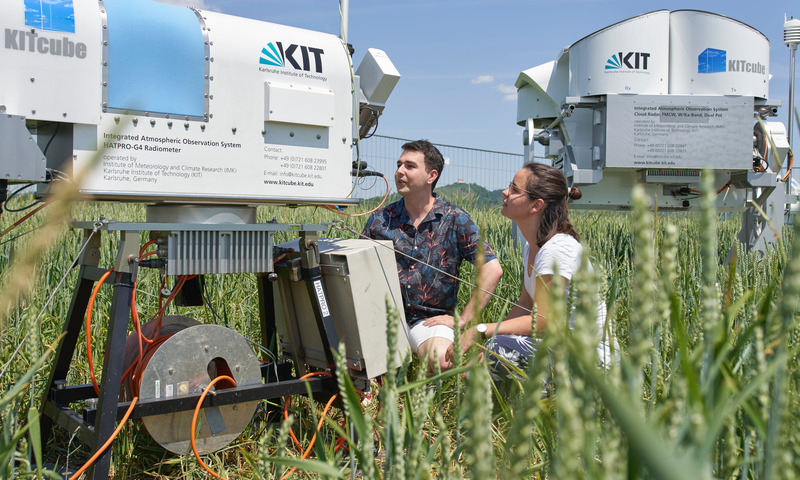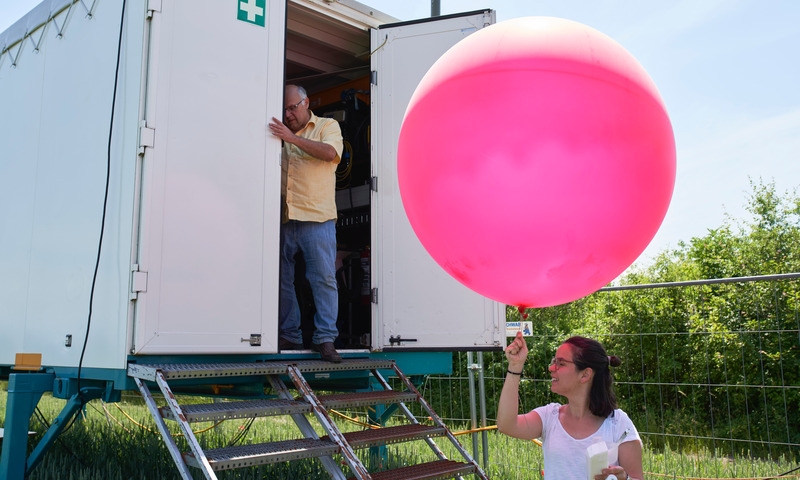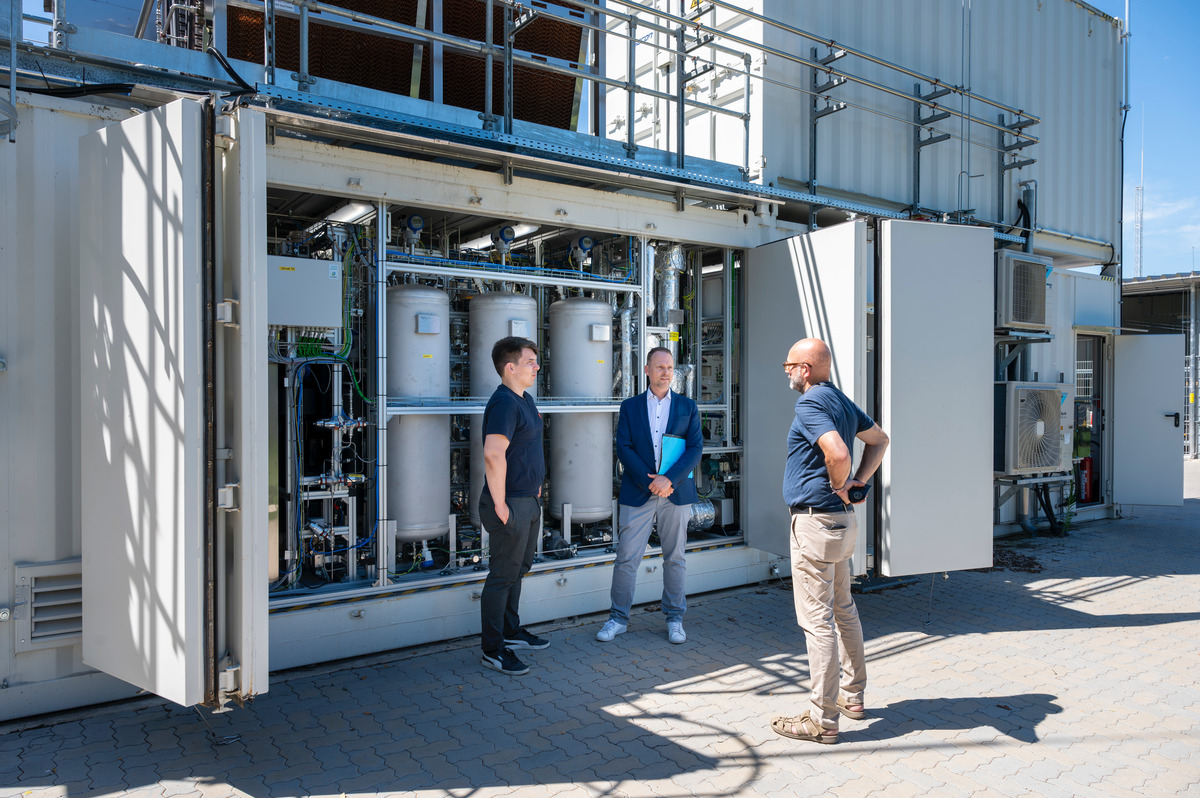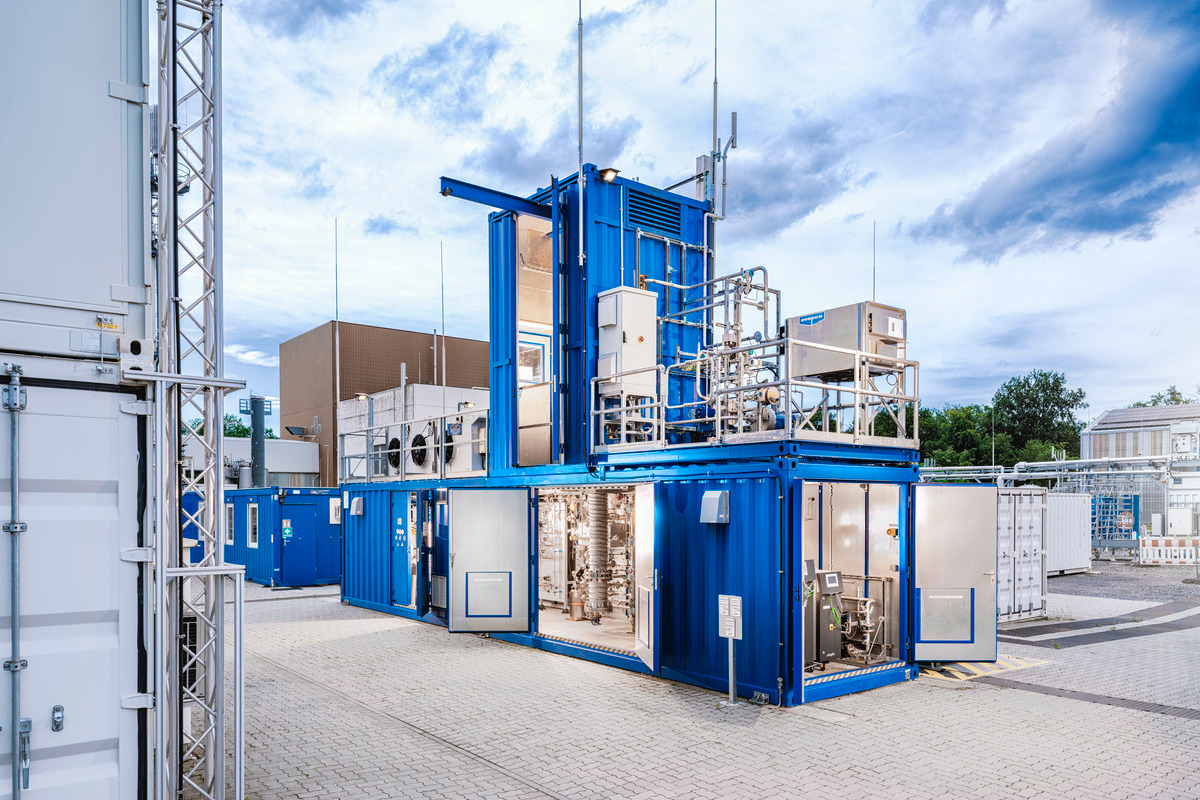The range of courses on offer expands with each selection round. This overview lists new and selected courses from the current round. The table on our homepage and on the RIRO-Grants page provides a complete overview of the courses.
Atmospheric Remote Sensing Infrastructures
| Contact person | Prof. Cermak |
| Degree Programms | Master's Degree in Geoinformatics, and Meteorology and Climate Physics |
| Infrastructure | KITcube, KLOCX, Wolkenradar, IAGOS, COCCON, Validierungsnetz Landoberflächentemperatur, GLORIA |
| Number of participants | more than 50 |
| Takes place | annually since summer 2025 |
| more information | here |
Introduction of a new module at Master's level, selectable as a supplementary or compulsory elective subject. Students are familiarized with various remote sensing infrastructures through excursions and can deepen their work on such infrastructures in an interest-driven manner by carrying out an independent research project. The lecturers are tandems of CN & CS researchers who are coached and trained specifically for this course. The course is thoroughly competence-oriented, focusing not only on specialist skills but also on personal and social skills.
Smart Energy System Lab
| Contact person | Dr. Jumar, Prof. Hagenmeyer, Dr. Waczowicz |
| Degree Programms | Master's Degree in Computer Science, Mechanical Engineering, Mechatronics and Information Technology |
| Infrastructure | Energy Lab |
| Number of participants | approx. 15 |
| Takes place | each semester since summer 2022 |
| more informations | here |
The aim is to integrate current energy research topics from the Energy Lab into teaching by offering application-oriented small group practicals. This enables research-oriented teaching, which is promoted by the support and involvement of the institute's scientists. Students have the opportunity to choose from various subject areas and work on specific projects in small groups. 1:1 supervision by doctoral students ensures individual support. A theoretical preparation phase is followed by a three-week work phase on site. At the end of the internship, a final report is expected, which must be submitted as a publication.




